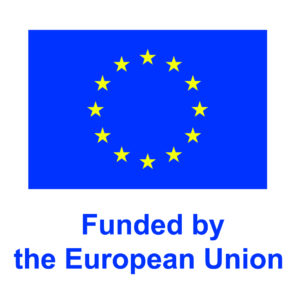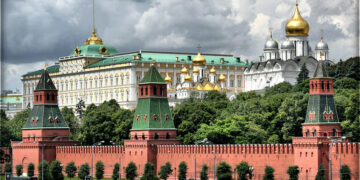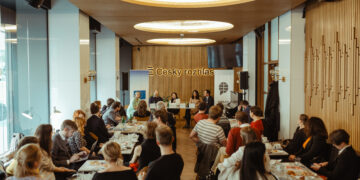Can Central Europe Regain Trust in Facts? Public Discussion

The crises of recent years, from migration to the pandemic and the war in Ukraine, have brought about a crisis of trust among Central Europeans in their governments, media, democratic values, and information as a whole. The result has been anti-government protests, alarming public opinion polls, and a belief among parts of society that there is not just one truth.
This erosion of trust is further deepened by both foreign and domestic actors who flood the information space with half-truths and falsehoods. They are aided in this by social media platforms whose algorithms push false and emotional content to the forefront. In such a flood of disinformation and manipulation, factual communication from state institutions and independent media easily gets lost. The speakers of the debate, “Can Central Europe Regain Trust in Facts?” organized by AMO on August 15, 2023, in Havlíčkův Brod as part of the Karel Havlíček Borovský Summer Journalism School program, highlighted these challenges.
The discussion also compared the situation within the EU, particularly in Slovakia and the Czech Republic. The guests were Pavel Havlíček, an analyst from the Association for International Affairs (AMO), and Matej Kandrík, the executive director of the Slovak institute ADAPT. The discussion was moderated by AMO analyst Nikoleta Nemečkayová.
Speakers presented the main actors behind the spread of disinformation who capitalize on people’s distrust in institutions. In Slovakia, this is mainly established political parties like SMER-SD or Republika. Through politicians, similar narratives to those propagated by Viktor Orbán or the Kremlin regime infiltrate mainstream media and hold a strong position in public discourse. Conversely, in the Czech Republic’s public and mainstream media, which Czechs consider their primary source of information, there is little room for disseminating disinformation. Therefore are disinformations primarily found in alternative media on the fringes of public discourse, spread by anti-establishment actors, including various disinformation websites and so-called “dezinfluencers.” In the Czech Republic, there are far more of them than in Slovakia, where politicians with access to public media channels spread disinformation, directly targeting citizens.
One of the debated topics was the issue of financing disinformation websites through advertising and placing ads on them. In Slovakia, for example, the parliamentary party Sme rodina advertised on a disinformation website that was later blocked by the state, and its leader Boris Kollár defended the move even afterwards, which, according to Kandřík, increases the importance of this source. In the Czech Republic, Lesy ČR also faced this problem, added Havlíček. This is how these websites can earn up to a million crowns per month.
Another discussed topic was the protection of journalists and media from intimidation and so-called “hate speech,” as well as the overall coarsening of public discourse. Slovakia has experienced physical attacks on doctors during the pandemic, intimidation of President Čaputová, and the murder of a journalist. Discussants agreed that the solution should not be a new law, but rather strengthening the moral stance of society and establishing clear values so that such actions are not accepted because they are strongly immoral and not illegal. As Pavel Havlíček added, we have many laws, but their enforceability is lacking.
Disinformation affects people of all generations, although it is mainly associated with older individuals. However, young people are also influenced, but it manifests differently. While older generations tend to show anti-Americanism, pro-Russian sentiments, and nostalgia for the old regime, young people experience overall skepticism and frustration, which either leads to “anti-establishment” sentiments and radicalization or to withdrawal into their inner world and a loss of interest in external events, explained Matej Kandrík. Despite growing up in the digital era and being more resistant to disinformation, young people lack sufficient media and digital education and skills to assess these risks correctly. The result of this information warfare is that people have no appetite or need to accept any news, they are disillusioned and do not vote.
Strategic state communication plays a key role in combating these threats in the information space. Its effective use can help the state defend itself not only in crisis situations but also in times of peace and stability. And also social values are an important part of combating disinformation and shaping the direction of the country, as emphasized by Matej Kandrík. Given their strong value base and cultural awareness, countries like Estonia or Poland are more resilient to Russian disinformation. These are important elements of the strategy for the Czech and Slovak Republics to regain trust in facts, democratic values, and the actors who promote them. It is essential to strengthen our societies in the fight against disinformation and maintain stability and trust even in turbulent times.
Funded by the European Union. The views and opinions expressed represent the views and opinions of the authors and do not necessarily reflect the views and opinions of the European Union or the European Commission. Neither the European Union nor the European Commission can be held responsible.





